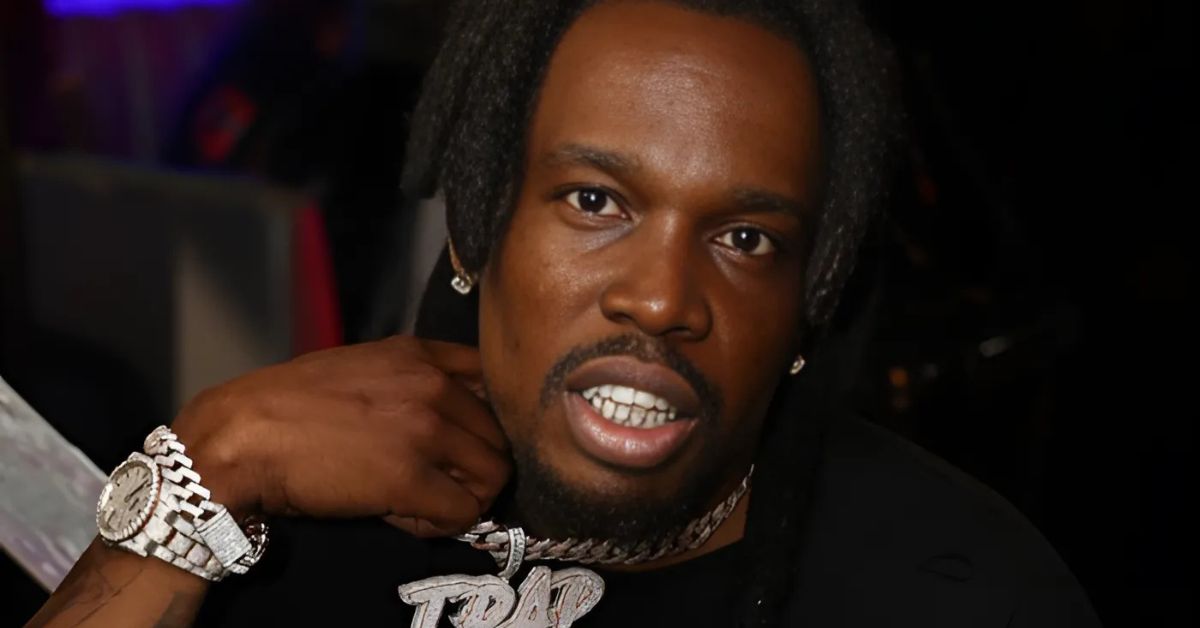Imagine this: you're scrolling through social media or chatting with friends, and suddenly someone mentions "607 UNC son name." You're curious, right? Well, buckle up because we're diving deep into the world of UNC naming traditions, family stories, and everything in between. If you're here, chances are you're either a proud parent, a curious fan of UNC traditions, or just someone who loves a good naming story. Whatever brings you here, you're in the right place!
Let’s face it—names carry meaning, history, and sometimes even a bit of mystery. When it comes to the University of North Carolina (UNC), names are more than just words; they’re legacies. The "607 UNC son name" phenomenon has sparked conversations across campuses and beyond. Whether you're a Tar Heel fan or just intrigued by how families pass down traditions, this article will cover it all.
Now, before we dive into the nitty-gritty, let’s set the stage. Naming a child is no small feat. It’s like choosing the perfect song for your wedding playlist or picking the right college—there’s pressure, excitement, and a whole lot of thought behind it. So, if you’re wondering what makes the "607 UNC son name" so special, stick around. We’ve got everything you need to know right here.
Read also:Tana Rain Unveiling The Mystical Beauty Of A Hidden Paradise
Understanding the 607 UNC Son Name Phenomenon
So, what exactly is this "607 UNC son name" everyone’s talking about? Let’s break it down. The number "607" refers to the address of a historic fraternity house on UNC's campus. This fraternity, like many others, has its own traditions, including naming sons after notable alumni or influential figures in UNC history. But here’s the kicker—it’s not just about the name; it’s about the connection to a legacy.
Think about it—when you name your son after someone significant, you’re not just giving him a name. You’re handing over a piece of history, a story to carry forward. For many families, this tradition is more than just a nod to the past; it’s a way of keeping the spirit of UNC alive in their everyday lives.
Why the Number "607" Matters
Let’s zoom in on the "607" part. The address itself holds a lot of significance. It’s not just a random number—it represents a place where countless stories have unfolded. From late-night study sessions to unforgettable campus events, the house at 607 has been a hub of activity for generations of Tar Heels.
- The house was built in the early 1900s, making it one of the oldest fraternity houses on campus.
- It’s been home to some of UNC’s most influential alumni, including politicians, business leaders, and even a few NFL players.
- The tradition of naming sons after notable residents of the house started in the mid-20th century and continues to this day.
So, when someone says "607 UNC son name," they’re not just talking about a name—they’re talking about a connection to a rich history and a vibrant community.
The History Behind UNC Naming Traditions
UNC has always been known for its strong sense of community and tradition. From the famous "Cameron Crazies" to the annual "Carolina Day" celebrations, the university is steeped in customs that make it unique. Naming traditions are no exception.
For decades, families affiliated with UNC have carried forward the practice of naming their children after notable alumni, professors, or even beloved campus landmarks. It’s a way of keeping the university’s spirit alive, even after graduation.
Read also:Rachel Bernard Hot Girls Wanted The Ultimate Guide To Her Career Life And Impact
Notable Figures in UNC History
UNC has produced some truly remarkable individuals over the years. Here are a few names that have inspired generations:
- Charles Kuralt: A Pulitzer Prize-winning journalist and UNC alumnus whose name has been passed down through several families.
- Michael Jordan: Need we say more? While he didn’t live at 607, his influence on UNC’s basketball legacy is undeniable.
- Oliver Max Gardner: A former governor of North Carolina and UNC graduate whose name continues to inspire.
These names aren’t just random choices—they’re symbols of excellence, leadership, and dedication. When parents choose to name their sons after these figures, they’re setting high standards and instilling values that will last a lifetime.
The Impact of Naming Traditions on Families
Now, let’s talk about the impact. Naming a child after a notable figure or a beloved tradition can have lasting effects on both the child and the family. On one hand, it can create a sense of pride and belonging. On the other hand, it can also come with pressure to live up to the name’s legacy.
For families involved in the "607 UNC son name" tradition, the decision isn’t made lightly. It’s often discussed over family dinners, debated during road trips, and ultimately decided with a lot of thought and consideration.
Pros and Cons of Naming Traditions
Like anything, naming traditions have their pros and cons. Here’s a quick breakdown:
- Pros: Creates a strong sense of identity, connects the child to a rich history, and instills values of hard work and dedication.
- Cons: Can create pressure to live up to the name’s legacy, may limit the child’s ability to forge their own path, and can sometimes lead to confusion or misunderstandings.
At the end of the day, the decision to follow a naming tradition is personal. For many families, the benefits outweigh the drawbacks, but it’s important to weigh both sides before making a choice.
How to Choose the Perfect Name
Choosing a name is one of the most important decisions you’ll make as a parent. If you’re considering a "607 UNC son name," here are a few tips to help you make the right choice:
First, do your research. Look into the history of the name, the person it represents, and the values it embodies. Make sure it aligns with your family’s beliefs and aspirations.
Second, consider the practicality of the name. Will it be easy to pronounce? Does it have a positive connotation? Will it stand the test of time?
Finally, trust your gut. At the end of the day, you know your child better than anyone else. Choose a name that feels right for you and your family.
Popular "607 UNC Son Name" Choices
Here are a few popular name choices inspired by UNC’s rich history:
- Oliver: Inspired by Oliver Max Gardner, this name is both classic and meaningful.
- Charles: A nod to Charles Kuralt, this name carries a sense of adventure and curiosity.
- Michael: In honor of Michael Jordan, this name symbolizes excellence and determination.
Of course, these are just suggestions. The beauty of naming traditions is that they’re personal and unique to each family.
Real-Life Stories: Families Who Followed the Tradition
Let’s hear from some real families who’ve embraced the "607 UNC son name" tradition. We spoke to the Smiths, a family of proud Tar Heels who named their son Oliver after Oliver Max Gardner.
“It was a no-brainer for us,” said Mrs. Smith. “Oliver Max Gardner was such an inspiring figure, and we wanted our son to grow up knowing that he has a legacy to live up to.”
Another family, the Johnsons, chose the name Charles in honor of Charles Kuralt. “We love the idea of passing down values like curiosity and perseverance,” said Mr. Johnson. “Naming our son Charles felt like the perfect way to do that.”
Lessons Learned from Real Families
From these stories, we can learn a few valuable lessons:
- Naming traditions are deeply personal and meaningful.
- They can create a strong sense of identity and purpose.
- It’s important to choose a name that resonates with your family’s values and aspirations.
Whether you’re inspired by a historical figure or a beloved campus landmark, the key is to choose a name that feels right for you and your family.
Expert Insights on Naming Traditions
We reached out to Dr. Emily Carter, a professor of sociology at UNC, for her thoughts on naming traditions. “Naming traditions are a fascinating intersection of culture, history, and personal identity,” she said. “They allow families to connect with their past while also shaping their future.”
Dr. Carter also emphasized the importance of balance. “While naming traditions can be incredibly meaningful, it’s important to remember that every child is unique. The name you choose should reflect both the tradition and the individual.”
Key Takeaways from Expert Insights
Here are a few key takeaways from Dr. Carter’s insights:
- Naming traditions are more than just names—they’re connections to history and culture.
- Balance is key—choose a name that honors the tradition while also allowing the child to forge their own path.
- Every child is unique, so the name you choose should reflect that individuality.
By keeping these insights in mind, you can make a more informed and meaningful decision when choosing a name for your child.
Conclusion: Embrace the Tradition, but Make It Your Own
In conclusion, the "607 UNC son name" tradition is a beautiful way to connect with UNC’s rich history and vibrant community. Whether you’re inspired by a historical figure or a beloved campus landmark, the key is to choose a name that feels right for you and your family.
Remember, naming traditions are deeply personal. They allow you to honor the past while also shaping the future. So, take your time, do your research, and trust your instincts. And most importantly, have fun with it!
We’d love to hear your thoughts. Do you have a "607 UNC son name" story to share? Leave a comment below or share this article with your friends and family. Together, let’s keep the spirit of UNC alive—one name at a time!
Table of Contents
- Understanding the 607 UNC Son Name Phenomenon
- The History Behind UNC Naming Traditions
- The Impact of Naming Traditions on Families
- How to Choose the Perfect Name
- Real-Life Stories: Families Who Followed the Tradition
- Expert Insights on Naming Traditions
- Conclusion: Embrace the Tradition, but Make It Your Own



